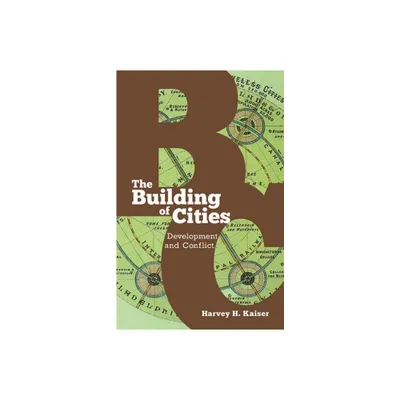Home
a Brighter Choice: Building Just School an Unequal City
Loading Inventory...
Barnes and Noble
a Brighter Choice: Building Just School an Unequal City
Current price: $90.00


Barnes and Noble
a Brighter Choice: Building Just School an Unequal City
Current price: $90.00
Loading Inventory...
Size: Hardcover
*Product Information may vary - to confirm product availability, pricing, and additional information please contact Barnes and Noble
In cities across the United States, affluent White newcomers are moving into historically Black neighborhoods, presenting both a challenge and an opportunity for public schools. In many cases, the newcomers either avoid their local schools or use their political power to push aside families who have lived in the neighborhood for years. But there’s a third possibility, one that can bring greater equity, and that’s the story of this book.
At Brighter Choice Community School, a public elementary school in Brooklyn’s rapidly gentrifying Bedford-Stuyvesant, a group of mostly Black parents, led by PTA president Keesha Wright-Sheppard, is learning to share the space with White newcomers. Outside the school, high rates of homelessness and a global pandemic that disproportionately hit people of color make it hard for children to succeed. Inside the school, hurt feelings and misunderstandings push parents apart. But the parents, working through conflicts to build a community of mutual trust and respect, are planting the seeds of interracial solidarity to fight for better schools for all. Whether these seeds flourish and grow depends on whether parents of all races, knowing the history of injustice and inequality, can learn to come together to overcome the past.
Book Features:
Follows a multiracial group of parents, working with an energetic principal and staff, as they learn to bridge the deep divides of race and class.
Shows why school integration is so difficult to achieve, even in integrated neighborhoods.
Traces the roots of inequality and the history of failed school reforms to address it.
Incorporates social science research to show the impact of school and neighborhood conditions on academic achievement.
Argues that socioeconomic integration offers one of the best hopes for improving schools, but only if school leaders take care not to marginalize low-income children.
Draws on interviews with parents and staff, school visits and observations, newspaper articles, scholarly books, and policy reports on school segregation.
At Brighter Choice Community School, a public elementary school in Brooklyn’s rapidly gentrifying Bedford-Stuyvesant, a group of mostly Black parents, led by PTA president Keesha Wright-Sheppard, is learning to share the space with White newcomers. Outside the school, high rates of homelessness and a global pandemic that disproportionately hit people of color make it hard for children to succeed. Inside the school, hurt feelings and misunderstandings push parents apart. But the parents, working through conflicts to build a community of mutual trust and respect, are planting the seeds of interracial solidarity to fight for better schools for all. Whether these seeds flourish and grow depends on whether parents of all races, knowing the history of injustice and inequality, can learn to come together to overcome the past.
Book Features:
Follows a multiracial group of parents, working with an energetic principal and staff, as they learn to bridge the deep divides of race and class.
Shows why school integration is so difficult to achieve, even in integrated neighborhoods.
Traces the roots of inequality and the history of failed school reforms to address it.
Incorporates social science research to show the impact of school and neighborhood conditions on academic achievement.
Argues that socioeconomic integration offers one of the best hopes for improving schools, but only if school leaders take care not to marginalize low-income children.
Draws on interviews with parents and staff, school visits and observations, newspaper articles, scholarly books, and policy reports on school segregation.


















